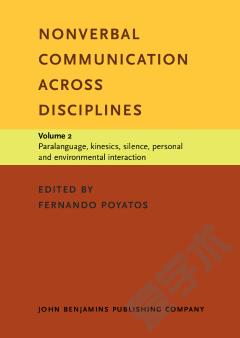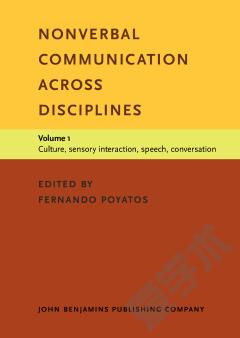Nonverbal Communication across Disciplines. Volume 2: Paralanguage, kinesics, silence, personal and environmental interaction.
Paralanguage and kinesics define the tripartite nature of speech. Volume 2 builds on Poyatosâ book Paralanguage (1993) â reviewed by Mary Key as âthe most amplified description of paralanguage available todayâ. It covers our basic voice components; the many normal or abnormal voice types; the communicative uses of physiological and emotional reactions like laughter, crying, sighing, coughing, sneezing, etc.; and word-like utterances beyond the official dictionary. Kinesics is viewed from interactive, intercultural and cross-cultural, and literary perspectives, with much needed research principles for the realistic study of gestures, manners and postures in their intersystemic links. Applications are given in the social or clinical sciences, intercultural communication, literature, painting, theater and cinema, etc. Related to both paralanguage and kinesics are the many eloquent sounds produced bodily, by manipulated objects and by the environment. A discussion of silence and stillness as opposed to sound and movement and related to darkness and light, shows their true interactive status, coding, functions, qualifiers, intersystemic co-structurations, positive and negative functions, and cross-cultural attitudes toward silence. The first two volumes are then brought together in a detailed model for studying our interactions with people and the environment, including certain emitting and transmitting congenital or traumatic limitations.1608 quotations from 133 authors and 216 works vividly illustrate all topics.
{{comment.content}}








 京公网安备 11010802027623号
京公网安备 11010802027623号